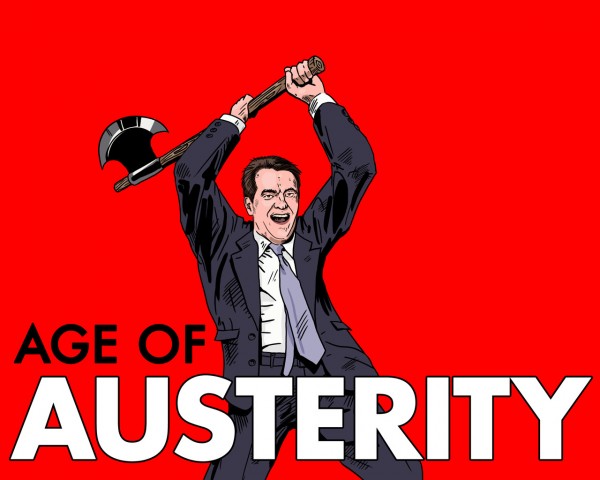ROBERT REICH: The major reason this recovery has been so anemic is not Europe’s debt crisis. It’s not Japan’s tsumami. It’s not Wall Street’s continuing excesses. It’s not, as right-wing economists tell us, because taxes are too high on corporations and the rich, and safety nets are too generous to the needy. It’s not even, as some liberals contend, because the Obama administration hasn’t spent enough on a temporary Keynesian stimulus. The answer is in front of our faces. It’s because American consumers, whose spending is 70 percent of economic activity, don’t have the dough to buy enough to boost the economy – and they can no longer borrow like they could before the crash of 2008. If you have any doubt, just take a look at the Survey of Consumer Finances, released Monday by the Federal Reserve. Median family income was $49,600 in 2007. By 2010 it was $45,800 – a drop of 7.7%. All of the gains from economic growth have been going to the richest 1 percent – who, because they’re so rich, spend no more than half what they take in. Can I say this any more simply? The earnings of the great American middle class fueled the great American expansion for three decades after World War II. Their relative lack of earnings in more recent years set us up for the great American bust. MORE
 ABOUT THE AUTHOR: Robert Bernard Reich is an American political economist, professor, author, and political commentator. He served in the administrations of Presidents Gerald Ford and Jimmy Carter and was Secretary of Labor under President Bill Clinton from 1993 to 1997. Reich is currently Chancellor’s Professor of Public Policy at the Goldman School of Public Policy at the University of California, Berkeley. He was formerly a professor at Harvard University‘s John F. Kennedy School of Government[3] and professor of social and economic policy at the Heller School for Social Policy and Management of Brandeis University. He has also been a contributing editor of The New Republic, The American Prospect (also chairman and founding editor), Harvard Business Review, The Atlantic, The New York Times, and The Wall Street Journal. In 2008, Time Magazine named him one of the Ten Best Cabinet Members of the century,[4] and The Wall Street Journal in 2008 placed him sixth on its list of the “Most Influential Business Thinkers”.[5] He was appointed a member of President-elect Barack Obama‘s economic transition advisory board. The Obama administration’s continued disregard of his advice (along with Paul Krugman’s) is a big part of why his re-election is so imperiled.
ABOUT THE AUTHOR: Robert Bernard Reich is an American political economist, professor, author, and political commentator. He served in the administrations of Presidents Gerald Ford and Jimmy Carter and was Secretary of Labor under President Bill Clinton from 1993 to 1997. Reich is currently Chancellor’s Professor of Public Policy at the Goldman School of Public Policy at the University of California, Berkeley. He was formerly a professor at Harvard University‘s John F. Kennedy School of Government[3] and professor of social and economic policy at the Heller School for Social Policy and Management of Brandeis University. He has also been a contributing editor of The New Republic, The American Prospect (also chairman and founding editor), Harvard Business Review, The Atlantic, The New York Times, and The Wall Street Journal. In 2008, Time Magazine named him one of the Ten Best Cabinet Members of the century,[4] and The Wall Street Journal in 2008 placed him sixth on its list of the “Most Influential Business Thinkers”.[5] He was appointed a member of President-elect Barack Obama‘s economic transition advisory board. The Obama administration’s continued disregard of his advice (along with Paul Krugman’s) is a big part of why his re-election is so imperiled.

